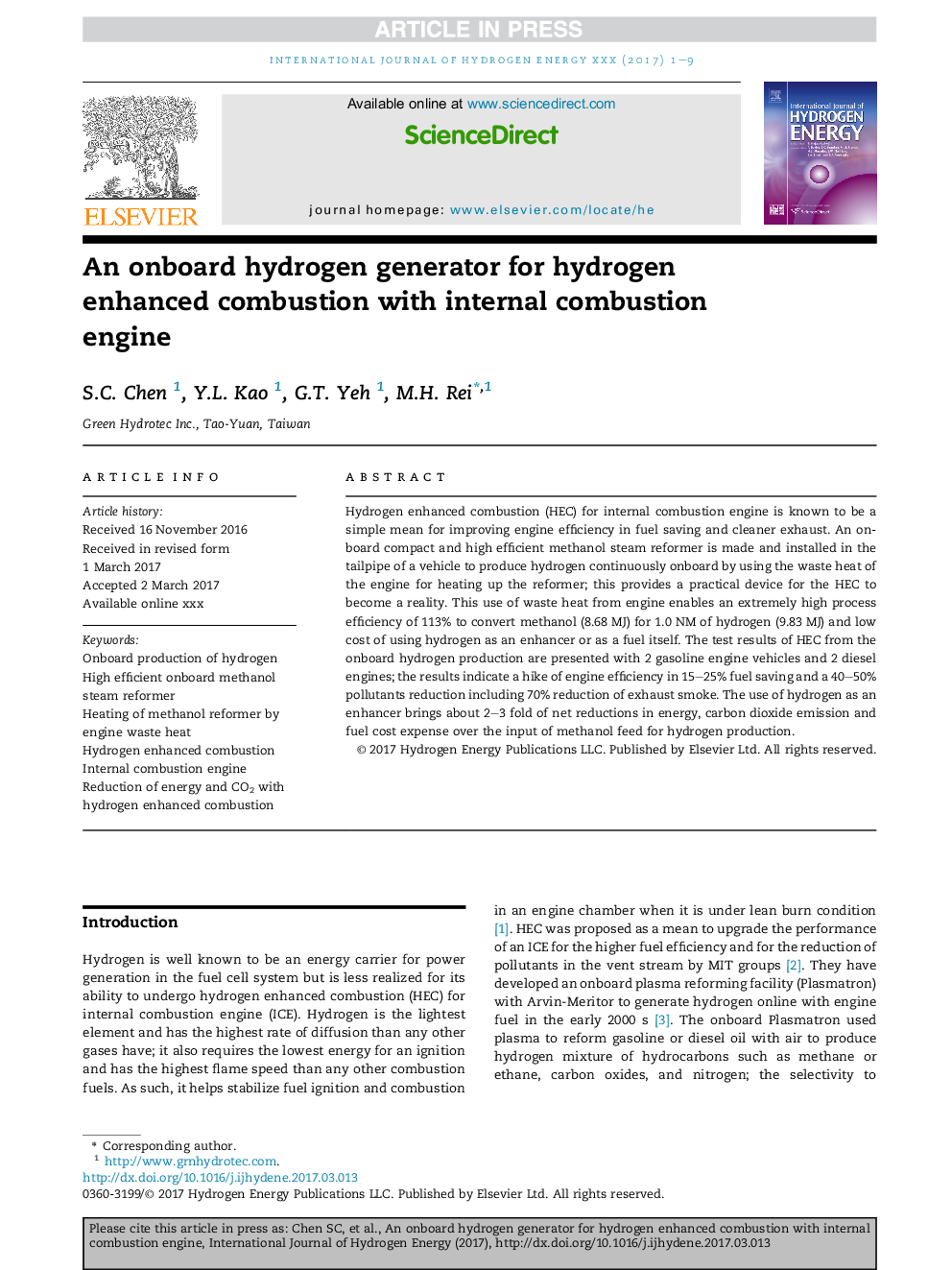| Article ID | Journal | Published Year | Pages | File Type |
|---|---|---|---|---|
| 5145988 | International Journal of Hydrogen Energy | 2017 | 9 Pages |
Abstract
Hydrogen enhanced combustion (HEC) for internal combustion engine is known to be a simple mean for improving engine efficiency in fuel saving and cleaner exhaust. An onboard compact and high efficient methanol steam reformer is made and installed in the tailpipe of a vehicle to produce hydrogen continuously onboard by using the waste heat of the engine for heating up the reformer; this provides a practical device for the HEC to become a reality. This use of waste heat from engine enables an extremely high process efficiency of 113% to convert methanol (8.68Â MJ) for 1.0Â NM of hydrogen (9.83Â MJ) and low cost of using hydrogen as an enhancer or as a fuel itself. The test results of HEC from the onboard hydrogen production are presented with 2 gasoline engine vehicles and 2 diesel engines; the results indicate a hike of engine efficiency in 15-25% fuel saving and a 40-50% pollutants reduction including 70% reduction of exhaust smoke. The use of hydrogen as an enhancer brings about 2-3 fold of net reductions in energy, carbon dioxide emission and fuel cost expense over the input of methanol feed for hydrogen production.
Keywords
Related Topics
Physical Sciences and Engineering
Chemistry
Electrochemistry
Authors
S.C. Chen, Y.L. Kao, G.T. Yeh, M.H. Rei,
